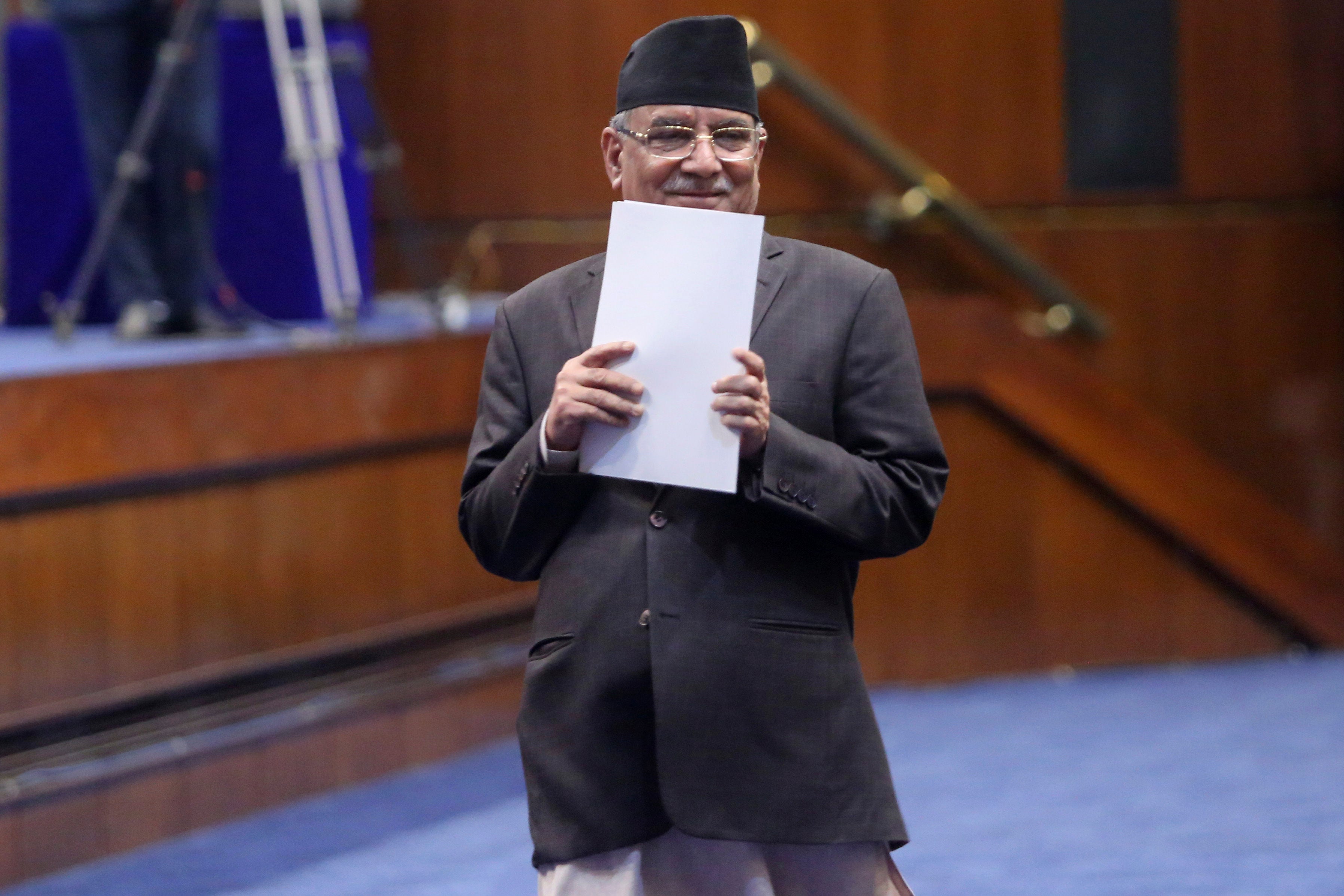Nepal's PM secures vote of confidence in Parliament
Nepal’s communist prime minister has secured a vote of confidence in Parliament, enabling him to continue as long as he has the backing of his new coalition partners

Your support helps us to tell the story
From reproductive rights to climate change to Big Tech, The Independent is on the ground when the story is developing. Whether it's investigating the financials of Elon Musk's pro-Trump PAC or producing our latest documentary, 'The A Word', which shines a light on the American women fighting for reproductive rights, we know how important it is to parse out the facts from the messaging.
At such a critical moment in US history, we need reporters on the ground. Your donation allows us to keep sending journalists to speak to both sides of the story.
The Independent is trusted by Americans across the entire political spectrum. And unlike many other quality news outlets, we choose not to lock Americans out of our reporting and analysis with paywalls. We believe quality journalism should be available to everyone, paid for by those who can afford it.
Your support makes all the difference.Nepal's communist prime minister secured a vote of confidence in Parliament on Monday, enabling him to continue as long as he has the backing of his new coalition partners.
Prime Minister Pushpa Kamal Dahal got 172 votes while 89 members voted against him in the House of Representatives, the lower house of Parliament.
Dahal became prime minister in December after elections a month earlier produced no clear winner.
The first coalition government he put together fell apart after three major partners pulled out of because of differences on separate issues with Dahal.
He was forced by law to seek a vote of confidence but managed to get the support of his former rival, the Nepali Congress party, which is the largest in Parliament. The party is now set to become a part of the new coalition government with several smaller parties.
Political turmoil and frequent changes in government are nothing new in Nepal, where eight different governments have ruled in the past 10 years.
This is Dahal's third time in power since his Maoist group abandoned a decade-long armed revolt in which more than 17,000 people were killed and joined a U.N.-assisted peace process and mainstream politics in 2006.
The Maoists secured most parliamentary seats in 2008 elections and Dahal, also known as Prachanda, or the “fierce one,” became prime minister but quit a year later over differences with the president.